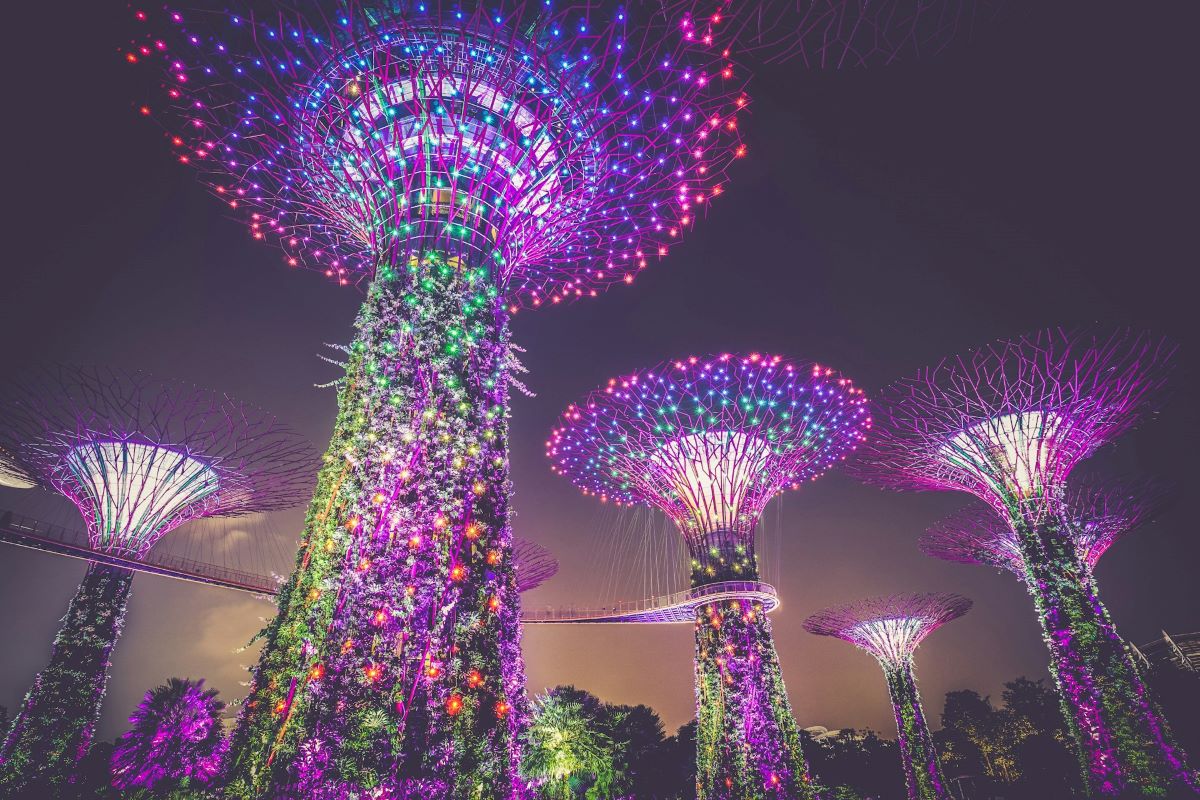Table of Contents
ToggleSingapore, though small in landmass, has made significant strides in renewable energy. Known for its economic prowess, Singapore is now focusing on sustainable energy solutions to ensure a greener future. This article aims to illuminate the current state of the Singapore renewable energy industry, its key players, innovations, government initiatives, challenges, opportunities, and future trends. Whether you’re an industry professional or simply interested in energy trends, we’ll provide valuable insights into Singapore’s renewable energy landscape.
Overview of the Current State of Singapore Renewable Energy
The Singapore renewable energy sector is growing, driven by the government’s commitment to reducing carbon emissions and enhancing energy security. Solar power is the most developed renewable energy source in Singapore due to the country’s high solar irradiation levels. However, other renewable energy sources like wind, hydro, and biomass are being explored to diversify the energy mix.
Current statistics show that solar energy contributes significantly to Singapore’s renewable energy capacity. With over 350 MWp of solar capacity installed, the country is on track to meet its target of 2 GWp by 2030. This growth indicates a solid commitment to integrating more sustainable energy sources into the national grid.
Despite the land constraints, innovative solutions like floating solar panels on reservoirs and building-integrated photovoltaics (BIPV) are being implemented. These advancements showcase Singapore’s determination to overcome geographical limitations and maximise renewable energy potential.
Read more: Powering the Future: Exploring China’s Renewable Energy Industry
Analysis of Key Players and Innovations in the Industry
Several key players drive the renewable energy sector in Singapore, ranging from government agencies to private enterprises. The Energy Market Authority (EMA) and the Singapore Economic Development Board (EDB) are pivotal in shaping the industry’s regulatory and strategic framework.
One of the notable innovations is the development of floating solar farms. Projects like the Tengeh Reservoir floating solar farm, which spans 45 hectares and generates enough energy to power 16,000 four-room HDB flats annually, exemplify cutting-edge advancements.
Private companies such as Sunseap Group, Sembcorp Industries, and REC Solar are also leading the charge. These companies are involved in large-scale solar installations, research, and development of new green technologies, and providing renewable energy solutions to commercial and residential customers.
Read more: Top 7 Solar Energy Projects in the Asia-Pacific Region
Government Initiatives and Policies Supporting Renewable Energy
The Singaporean government has been proactive in implementing policies and initiatives to bolster the renewable energy sector. The Singapore Green Plan 2030 outlines a comprehensive approach to sustainable development, targeting significant carbon emission reductions and enhanced sustainability practices.
Incentive schemes like the SolarNova programme aim to accelerate solar adoption by aggregating solar demand across government buildings. Additionally, the Renewable Energy Certificate (REC) market enables businesses to offset their carbon footprint and support the growth of renewable energy projects.
Policy frameworks such as the Carbon Pricing Act and the Energy Conservation Act further encourage industries to adopt cleaner energy solutions. These policies create a favourable environment for renewable energy investments and innovation.
Read more: Japan’s Renewable Energy Sector: A Quick And Balanced Look On A Rising Industry
Challenges and Opportunities in the Singaporean Renewable Energy Market
Despite the progress, the renewable energy market in Singapore faces several challenges. Limited land availability poses a significant hurdle for large-scale renewable installations. The intermittency of renewable energy sources like solar and wind also requires robust energy storage solutions to ensure grid stability.
However, these challenges present opportunities for innovation and collaboration. Developing advanced energy storage systems, such as battery storage technology, can mitigate intermittency issues. Furthermore, integrating renewable energy with smart grid technologies can optimise energy distribution and consumption.
Collaborations between public and private sectors can also drive research and development of new renewable energy technologies. By leveraging Singapore’s position as a global hub for innovation, the country can attract international investments and expertise to further enhance its renewable energy capabilities.
Read more: The Rise of Renewable Energy in Vietnam: Opportunities and Challenges
Future Projections and Trends in the Renewable Energy Sector in Singapore
Looking ahead, the future of renewable energy in Singapore appears promising. The government’s commitment to achieving net-zero emissions by 2050 sets a clear direction for the energy sector. Increasing investments in research and development will likely yield new technologies and solutions to overcome current challenges.
One emerging trend is the integration of renewable energy with digital technologies. Smart grids, IoT devices, and AI-driven energy management systems can optimise energy usage and distribution, improving overall efficiency and sustainability.
Additionally, international collaborations and partnerships will play a crucial role in advancing renewable energy adoption. Singapore’s strategic location and reputation as a business hub make it an attractive destination for global renewable energy companies seeking to expand their presence in Asia.
Read more: Taiwan’s Renewable Energy Industry: A Bright Future Ahead
Conclusion
The Singapore renewable energy industry has made remarkable progress, driven by government initiatives, innovative solutions, and active participation from key players. While challenges remain, the opportunities for growth and advancement are immense.
For energy industry professionals and organisations looking to integrate renewable energy into their operations, Singapore offers a dynamic and supportive environment. By staying informed about the latest trends and developments, stakeholders can contribute to and benefit from the ongoing transformation of the energy landscape.
To explore further and stay updated on Singapore’s renewable energy sector, sign up for our newsletter and join the conversation with industry experts. Together, we can drive the future of sustainable energy forward.
Interested in expanding to Singapore? With our over 15 years of experience serving the Asian market, Eos Global Expansion is ready to help. Our Employer of Record (EoR) services will take care of the administrative duties so you can focus on your core business. Check out our services here or contact us directly.







